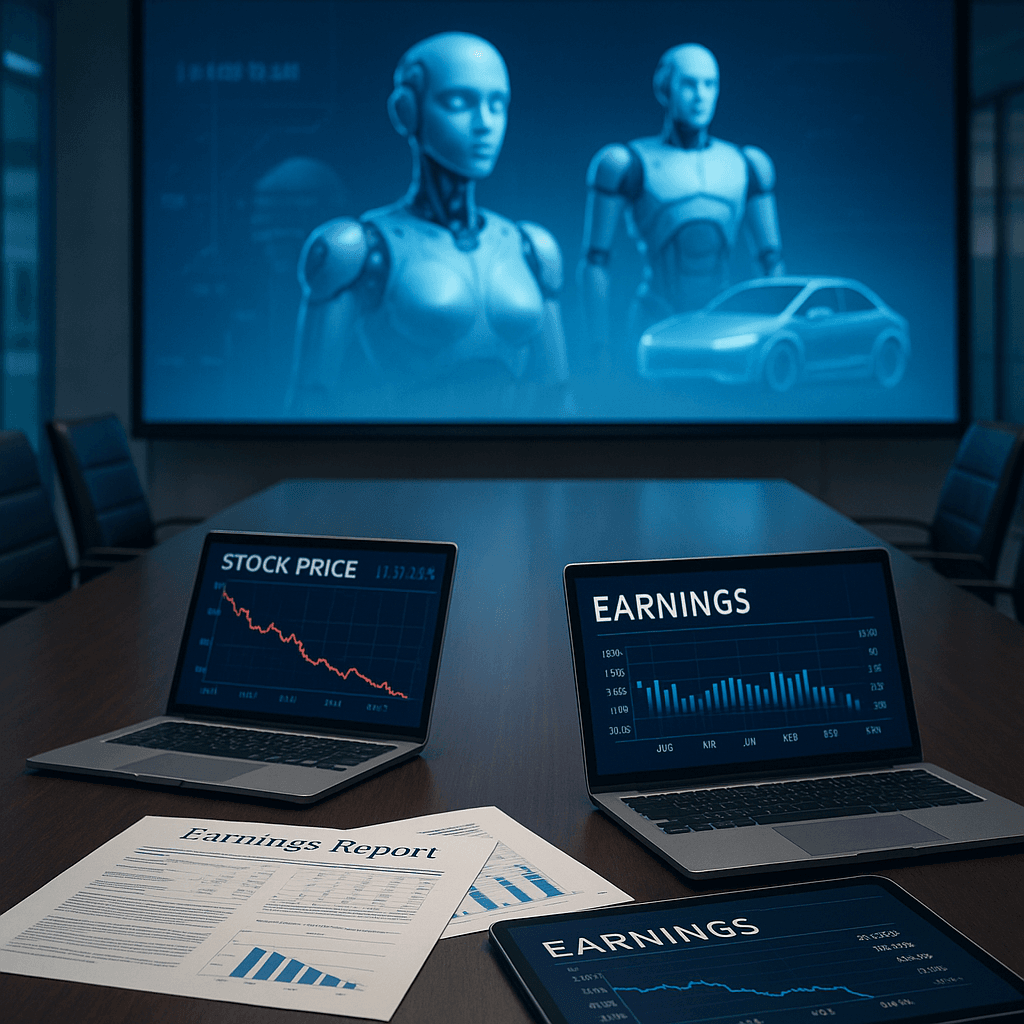Tesla CEO Elon Musk spent his Q3 earnings call promising that Optimus robots will become "incredible surgeons" while completely sidestepping Wall Street's questions about slumping EV demand and the expired federal tax credit. The stock dropped 4% in after-hours trading as investors got bold robotics predictions instead of near-term business guidance they desperately needed.
Tesla's third-quarter earnings call Wednesday night felt like a peek into Elon Musk's sci-fi fever dreams rather than a serious discussion about the world's most valuable automaker. While investors desperately wanted answers about plummeting EV demand after the federal tax credit expired last month, Musk instead painted visions of robot surgeons and poverty-free worlds powered by his humanoid Optimus bots.
"Optimus will be an incredible surgeon," Musk declared during the call, according to CNBC's coverage. He claimed that combining Optimus with self-driving technology could "actually create a world where there is no poverty, where everyone has access to the finest medical care." The stock immediately tumbled 4% in extended trading.
What Musk didn't mention speaks volumes. No discussion of Cybertruck production. Zero guidance on how tariffs might impact auto parts costs. Complete silence on fourth-quarter outlook. Tesla's finance chief Vaibhav Taneja revealed that FSD Supervised adoption remains "still small" at just 12% of Tesla's user base, with FSD revenue actually declining from the $326 million generated in the same quarter last year - meaning the much-hyped feature accounts for less than 2% of total revenue.
The robotaxi promises felt particularly hollow given the competitive reality. While Alphabet's Waymo aggressively expands its commercial robotaxi service into new markets and Baidu's Apollo Go gains traction across China, Tesla remains stuck in pilot project purgatory. Just three months ago, Musk predicted robotaxis would be available to "probably half the population of the U.S. by the end of the year." That timeline has now shifted to maybe Austin by year-end, with 8-10 cities getting driver-assisted versions throughout 2026.
But Musk's most revealing moment came when he connected his robotics vision to his controversial $1 trillion pay package, which shareholders will vote on next month. "If we build this robot army, do I have at least a strong influence over that robot army?" he asked. "I don't feel comfortable building that robot army if I don't have at least a strong influence." When proxy advisors ISS and Glass Lewis recommended voting against the massive compensation plan, Musk lashed out, calling them "corporate terrorists" who "have no freaking clue."












